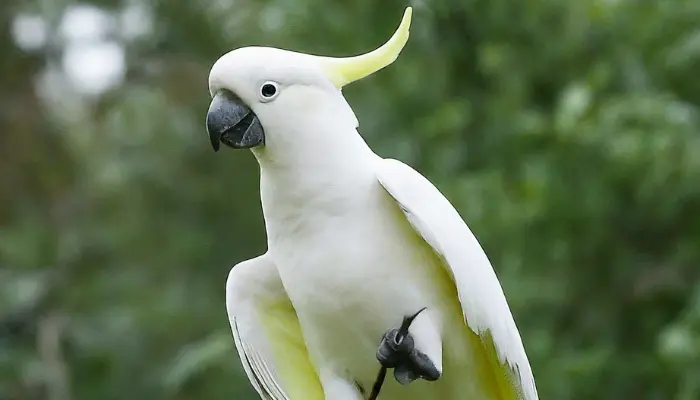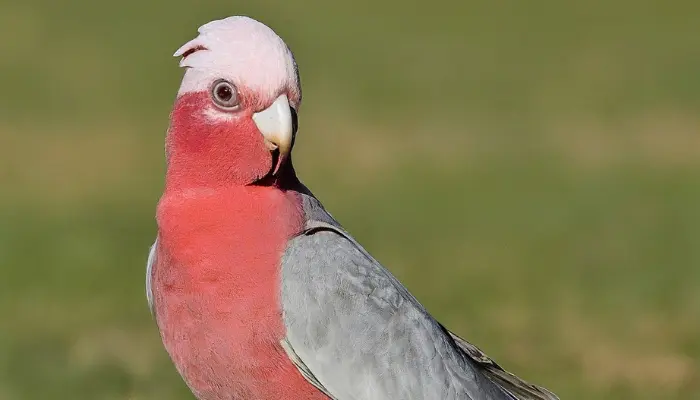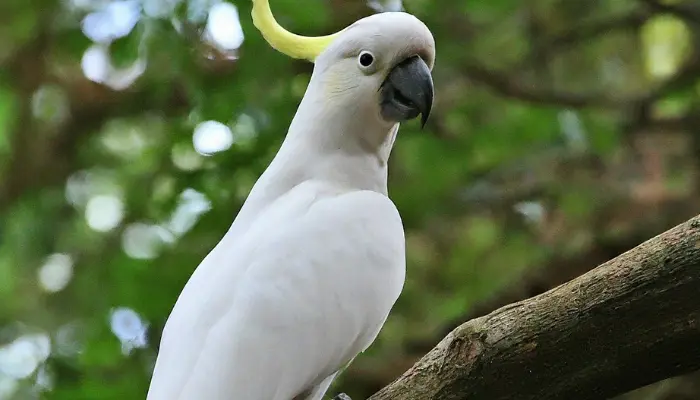Cockatoos with their vibrant plumage, charismatic personalities, and captivating intelligence, have long been cherished as companions in the world of aviculture. However, behind their enchanting appearance lies a complex and demanding nature that often leaves prospective pet owners wondering. are cockatoos good pets? In this article, we delve into the intricacies of cockatoo ownership, exploring the joys and challenges of welcoming these majestic birds into your homes.
Are Cockatoos Good Pets for Beginners
Cockatoos are not typically recommended as pets for beginners due to several reasons. They have a long lifespan and requiring a significant commitment. They are highly social birds, needing a lot of attention and interaction. Their loud calls and destructive tendencies can be challenging to manage.
Additionally, they have specialized care needs including diet and environment requirements. While they can make wonderful pets for experienced bird owners, beginners might find it easier to start with a smaller, less demanding bird species to gain experience in caring for birds.

Characteristics of Cockatoos
Cockatoos are a diverse group of parrots known for their distinctive crests and playful personalities. Here are some key characteristics.
- Crest: One of the most distinctive features of cockatoos is their prominent crest, which they can raise or lower depending on their mood or level of excitement.
- Social Creatures: Cockatoos are highly social birds and thrive on interaction with their human caregivers or other birds. They can become very attached to their owners and may suffer from separation anxiety if left alone for long periods.
- Vocalization: Cockatoos are known for their loud vocalizations, which can range from pleasant chirps and whistles to ear-piercing screeches. They use vocalization as a means of communication within their flock and to express their emotions.
- Intelligent: Cockatoos are highly intelligent birds and require mental stimulation to prevent boredom. They can be trained to perform tricks, and many enjoy solving puzzles or playing with toys.
- Affectionate: Cockatoos are often described as affectionate birds that enjoy cuddling and physical contact with their owners. They may seek out attention by snuggling against their owner’s neck or preening their hair.
- Longevity: Cockatoos are long-lived birds, with many species having lifespans of 40 to 60 years or more in captivity. This long lifespan means that owning a cockatoo is a significant commitment requiring careful consideration and planning.
- Destructive Behavior: Cockatoos have powerful beaks that they use to chew and destroy objects in their environment. Without proper supervision and plenty of appropriate toys, they may develop destructive behaviors such as chewing furniture or plucking out their feathers.
- Messy Eaters: Cockatoos can be messy eaters, scattering food and creating debris around their feeding area. Regular cleaning is necessary to maintain their environment.
- Sensitive Creatures: Cockatoos are sensitive birds that can become stressed by changes in their environment or routine. They may exhibit behavioral issues such as aggression or feather plucking if they are not provided with adequate care and attention.
- Species Diversity: There are many different species of cockatoos, ranging in size from the small and colorful cockatiel to the larger and more flamboyant sulphur-crested cockatoo. Each species has its own unique characteristics and care requirements.
Pros of Keeping Cockatoos as Pets
Keeping cockatoos as pets can be a rewarding experience for several reasons.
- Affectionate and Social: Cockatoos are known for their affectionate nature and enjoy forming strong bonds with their owners.
- Intelligent: They are highly intelligent birds, capable of learning tricks and even mimicking human speech.
- Long Lifespan: With proper care, cockatoos can live for several decades, providing companionship for many years.
- Entertaining: Cockatoos are playful and curious, providing hours of entertainment with their antics and interactions.
- Loyal Companions: They often develop loyal relationships with their owners, offering emotional support and companionship.
It is essential to note that keeping cockatoos as pets also comes with challenges. They require a significant amount of time, attention, and specialized care to thrive. Additionally, they can be loud and messy, which may not be suitable for all households.
Cons of Keeping Cockatoos as Pets
Keeping cockatoos as pets can be rewarding but there are several cons to consider.
- Noise: Cockatoos are known for their loud vocalizations, which can be disruptive, especially in an apartment or shared living space. Their calls can be piercing and frequent, potentially causing issues with neighbors or household members who are sensitive to noise.
- Destructive Behavior: Cockatoos have strong beaks and a natural inclination to chew. They may engage in destructive behavior, such as chewing on furniture, woodwork, or other household items. This behavior can be difficult to manage and may result in costly damage.
- High Maintenance: Cockatoos require a significant amount of time and attention from their owners. They are social birds that thrive on interaction and can become bored or depressed if left alone for extended periods. Providing adequate mental stimulation and socialization is essential for their well-being.
- Mess: Cockatoos are messy birds, known for their feather dust and tendency to scatter food and debris around their environment. Regular cleaning is necessary to maintain hygiene and prevent the accumulation of waste.
- Potential Health Issues: Like all pets, cockatoos are susceptible to various health problems, including respiratory infections, feather plucking, and nutritional deficiencies. Veterinary care for exotic birds can be expensive and may require finding a specialized avian veterinarian.
Before deciding to keep a cockatoo as a pet, it is essential to thoroughly research their care requirements and consider whether you can provide the time, resources, and commitment needed to meet their needs throughout their lifetime.

